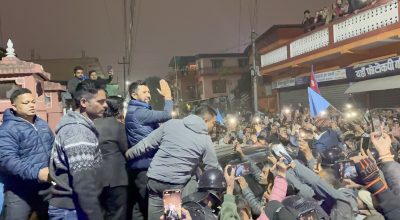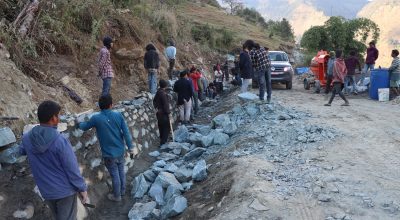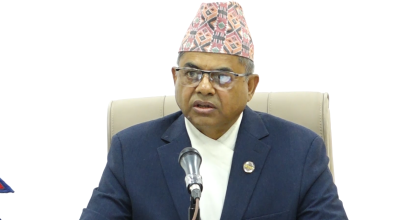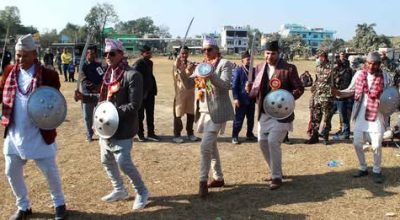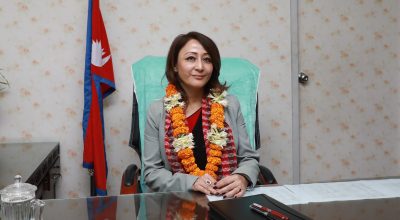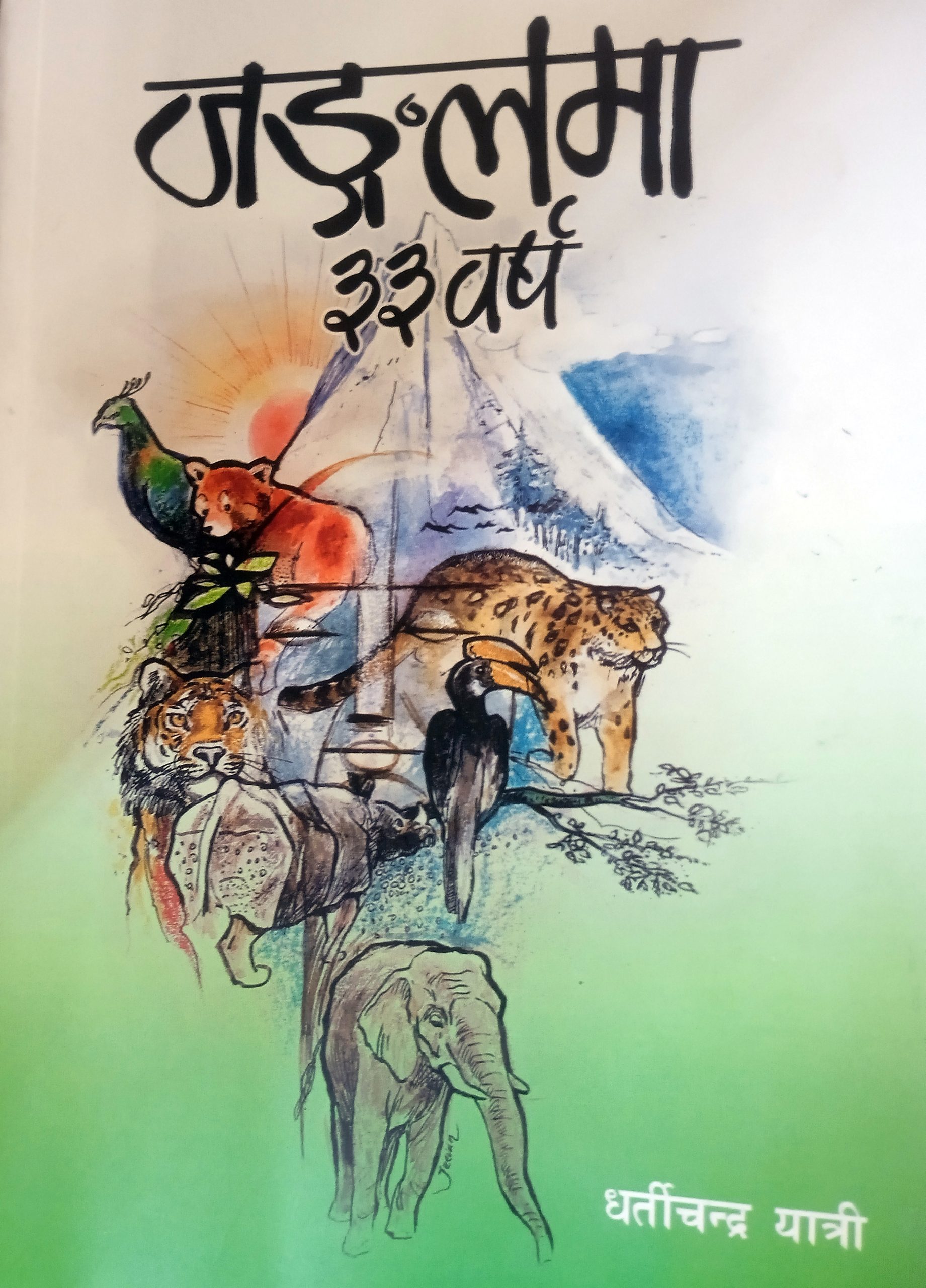
Deep Raj Sanyal
Kathmandu, April 13: Writer Dharti Chandra Yatri has come up with his newest creation ‘Jungle Ma Tettis Barsa (33 Years in the Jungle)‘, his fifth literary creation and first travelogue. In it, the writer, who is also a game scout at the Shivapuri National Park, has expressed his deep love and penchant for nature conservation.
The book, ’33 Years in the Jungle’ is also the author’s contribution to Nepal’s conservation sector. It is one among the few books that are written by people directly involved in this field. The book is edited by Mr Shyam Rimal. It is published by the Dr Thakurnath Panta Memorial Trust, Kathmandu and priced at Rs 500.
The 110-page book has two parts. The first part entitled ‘Thought, Study and Research’ dwells on the conceptual topics as the evolution and rationale of the Ministry of Forest, the national parks, wildlife reserves and conservation areas; the buffer zone; and community forest and its management. In brief and interesting personal account, it highlights some studies and research in the conservation sector. The first part has six essays.
The second part entitled ‘Impressions and Experience’ includes 27 essays describing the writer’s travel to different places and national parks in course of his work. In this book, Yatri has written more on Langtang, the place where he stayed the longest in the 33 years of his career. He has expressed in lucid and conversational style both the happy moments and the sad ones of his life as a game scout. It is also an account of the adventurous experiences of a conservationist with a poetic heart and mind.
These short essays are packed with interesting anecdotes described in poetic language and flavour. They speak volumes of the writer’s rich experience working as a game scout in varied geographies and environs of the country. Because the writer is also a poet, at times, Yatri becomes deeply emotional out of his love for nature and wildlife. Reading through these pieces, the readers will themselves experience the loneliness that a game scout faces working in the forests and national parks in the hinterlands and thereby transported to the wilderness.
However, it is not a journey of melancholy alone. There are also lighter moments full of joy and thrill in the company of friends and fellow staff.
Through these pithy pieces of narratives, which are also laced with the poet’s rumination, the writer describes the environs and the specialties of the places he visits and takes the reader along with him in his journey in some of Nepal’s popular and enchanting trekking destinations like Langtang Valley, Ghandruk, Helambu, Shivapuri, Gosainkunda and Dolpa.
Yatri has also included in this book some near-death incidents in course of his work as game scout – he survived a booby trap planted by the then Maoist rebels in Rasuwa and the falling rocks in one of his field expeditions in Sindhupalchok when the Gorkha Earthquake struck in 2015.
In the book, Yatri outlines the challenges in Nepal’s conservation arena and his suggestions to overcome these. He has also mentioned his bitter experience working with some unscrupulous people and how they tried to harass and intimidate him.
Overall, he is candid in his assessment of the people and places described in his travelogue. He has even taken swipe at some people in high places who, according to him, were involved in some unethical practices or misused their authority for petty interest.
Besides the places, the writer also talks about the people he has met and dealt with in course of work. He has worked passionately at the Park partly because he is also a poet. His work in high Himalayas is harsh, but regardless of taxing his health, it has enriched and fed his fervour for poetry.
The book is an exciting read for those interested in nature and wildlife conservation as it provides insight into the conservation world from a writer who has been involved in the sector for 33 years.
The publisher and the Ministry of Forests and Environment, Department of National Parks and Wildlife Conservation would do a great service if they could arrange for translating Yatri’s travelogue into English for the benefit of the non-Nepali readers as well.





